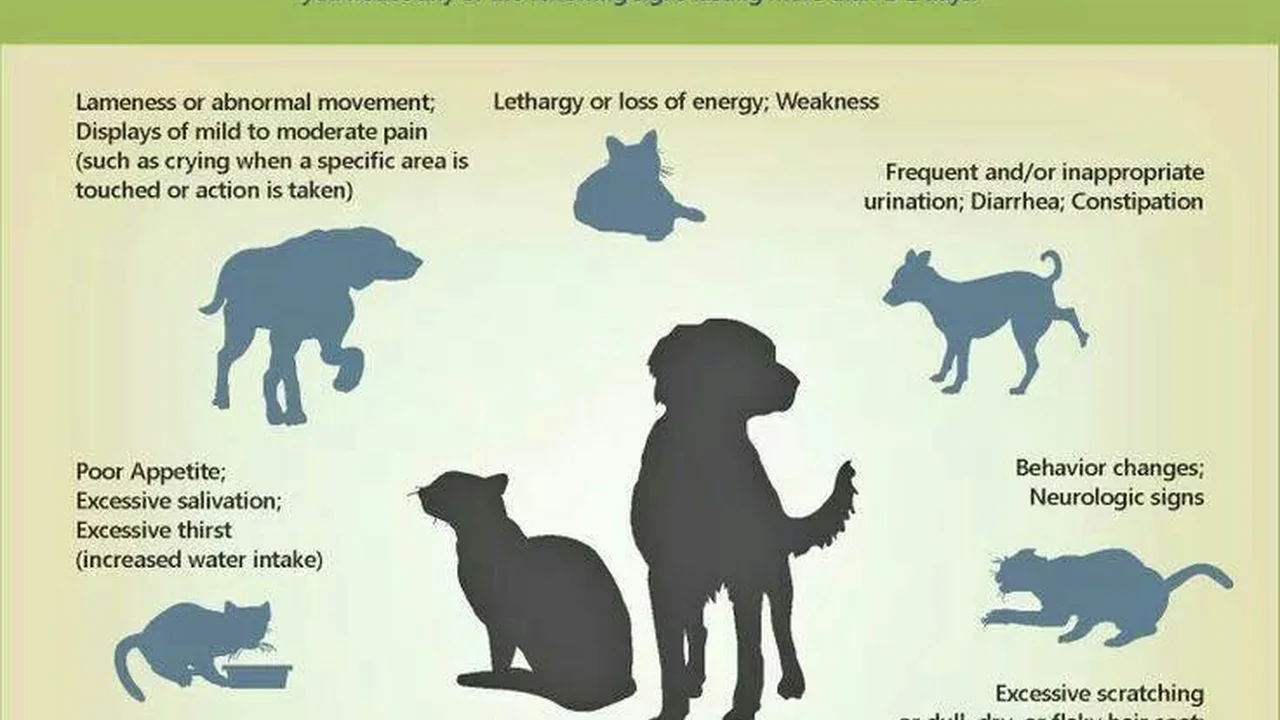5 Signs Your Pet Needs to See a Vet
5 Signs Your Pet Needs to See a Vet

It's tough being a pet parent. You love your furry, scaly, or feathered friend, and you want the best for them. But sometimes, it's hard to know when a simple sniffle is just a sniffle, and when it's a sign of something more serious. Knowing when to take your pet to the vet can be the difference between a quick recovery and a potentially life-threatening situation. This article outlines common symptoms that warrant a vet visit. Ensure your pet receives timely medical care.
Changes in Appetite and Water Consumption: Recognizing Pet Health Issues
One of the first things you might notice is a change in your pet's eating or drinking habits. Are they suddenly gobbling down their food like there's no tomorrow, or are they turning their nose up at their favorite kibble? Are they lapping up water like they've just crossed the Sahara, or are they barely touching their water bowl? Significant changes in appetite or thirst can be indicators of various health problems, from diabetes and kidney disease to dental issues and even stress. If these changes persist for more than a day or two, it's time to consult your vet. Don't just assume they are being picky; it could be a sign of a serious underlying issue.
For example, increased thirst and urination, particularly in older pets, can be a classic sign of kidney disease or diabetes. On the other hand, a sudden loss of appetite could indicate anything from a mild stomach upset to a more serious problem like an infection or even cancer.
Lethargy and Weakness: Understanding Pet Fatigue
Every pet has their lazy days, but if your usually energetic dog is suddenly spending all day curled up on the couch, or your playful cat is no longer interested in chasing their favorite toy, something might be wrong. Lethargy and weakness can be signs of a wide range of health issues, including infections, anemia, heart problems, and even poisoning. If your pet seems unusually tired or weak, especially if it's accompanied by other symptoms like loss of appetite or vomiting, it's important to get them checked out by a vet as soon as possible.
Consider the context. Did your dog just run a marathon at the park? Then a bit of tiredness is expected. But if they’re consistently sluggish for several days, especially if they are showing reluctance to exercise, it’s a red flag. Also, pay attention to the specific type of weakness. Are they wobbly on their feet? Do they seem to have difficulty getting up? These details are valuable information for your veterinarian.
Vomiting and Diarrhea: Identifying Gastrointestinal Problems in Pets
Let's face it, nobody likes dealing with vomit or diarrhea, especially when it comes from your beloved pet. While occasional vomiting or diarrhea can be caused by something as simple as eating something they shouldn't have, persistent or severe episodes can be a sign of a more serious problem. If your pet is vomiting or having diarrhea for more than 24 hours, if there's blood in their vomit or stool, or if they're showing other symptoms like lethargy or loss of appetite, it's time to call the vet.
It's important to try and gather as much information as possible for your vet. What does the vomit or diarrhea look like? Is there any blood? What did your pet eat recently? This information can help your vet narrow down the possible causes and determine the best course of treatment. Don’t hesitate to take a picture; it might sound gross, but it can be very helpful.
Coughing and Sneezing: Recognizing Respiratory Issues in Animals
Just like humans, pets can get coughs and sneezes. However, persistent coughing or sneezing, especially if accompanied by other symptoms like nasal discharge, difficulty breathing, or lethargy, can be a sign of a respiratory infection, allergies, or even heart disease. If your pet is coughing or sneezing frequently, or if they're having trouble breathing, it's important to get them checked out by a vet as soon as possible. Ignoring these symptoms can lead to more serious complications, such as pneumonia.
Pay attention to the type of cough. Is it a dry, hacking cough, or a wet, productive cough? Does it sound like they’re trying to cough something up? These details can help your vet diagnose the problem. Also, consider the environment. Is it allergy season? Could they have inhaled something irritating? These factors can provide valuable clues.
Skin Problems: Identifying Dermatological Issues in Pets
Skin problems are a common complaint among pet owners. From excessive scratching and licking to hair loss and skin lesions, there are many different signs that your pet might be suffering from a skin condition. While some skin problems are relatively minor, others can be more serious and require veterinary treatment. If your pet is excessively scratching, licking, or biting at their skin, if they have any bald patches or skin lesions, or if their skin seems red, inflamed, or scaly, it's time to consult your vet.
Look closely at the affected area. Is it localized, or is it widespread? Are there any signs of fleas or ticks? Is the skin oily or dry? These observations can help your vet determine the underlying cause of the problem. Remember that some skin conditions can be caused by allergies, so it’s important to consider your pet’s diet and environment.
Specific Product Recommendations for Symptom Relief (When Appropriate)
While a vet visit is crucial for diagnosis and treatment, some over-the-counter products can provide temporary relief while you wait for your appointment. *Always consult your vet before using any medication on your pet.*
For Skin Irritation: Veterinary Formula Clinical Care Antiparasitic & Antiseborrheic Medicated Shampoo
Use Case: This shampoo can help relieve itching and inflammation associated with skin conditions like mange, seborrhea, and parasitic infections. It contains ingredients like salicylic acid and coal tar, which can help soothe irritated skin. Comparison: Unlike some harsh shampoos, this one is designed to be gentle enough for regular use. However, it's important to follow the instructions carefully and avoid getting it in your pet's eyes. Price: Around $10-$15 per bottle.
For Upset Stomach (Mild Cases): Purina FortiFlora Probiotic
Use Case: This probiotic supplement can help restore the balance of bacteria in your pet's gut, which can be beneficial for mild cases of diarrhea or upset stomach. It comes in a convenient packet that you can sprinkle on your pet's food. Comparison: Compared to other probiotics, FortiFlora has a good reputation and is widely recommended by vets. However, it's not a substitute for veterinary care if your pet's symptoms are severe or persistent. Price: Around $25-$30 for a box of 30 packets.
For Pain Relief (Consult Your Vet First!): Buffered Aspirin (Dog-Specific)
Use Case: *Only use after consulting your veterinarian!* Buffered aspirin can provide temporary pain relief for dogs with arthritis or other musculoskeletal issues. *Never* give human aspirin to your pet without veterinary guidance, as it can be toxic. Comparison: There are dog-specific formulations of aspirin that are safer than human aspirin. However, it's still important to use caution and follow your vet's instructions carefully. Price: Varies depending on the brand and dosage.
Important Disclaimer: The information provided in this article is for general knowledge and informational purposes only, and does not constitute medical advice. It is essential to consult with a qualified veterinarian for any health concerns or before making any decisions related to your pet's health or treatment. Self-treating your pet can be dangerous and may delay proper diagnosis and treatment. Always seek professional veterinary care for your pet's specific needs and condition.
:max_bytes(150000):strip_icc()/277019-baked-pork-chops-with-cream-of-mushroom-soup-DDMFS-beauty-4x3-BG-7505-5762b731cf30447d9cbbbbbf387beafa.jpg)






